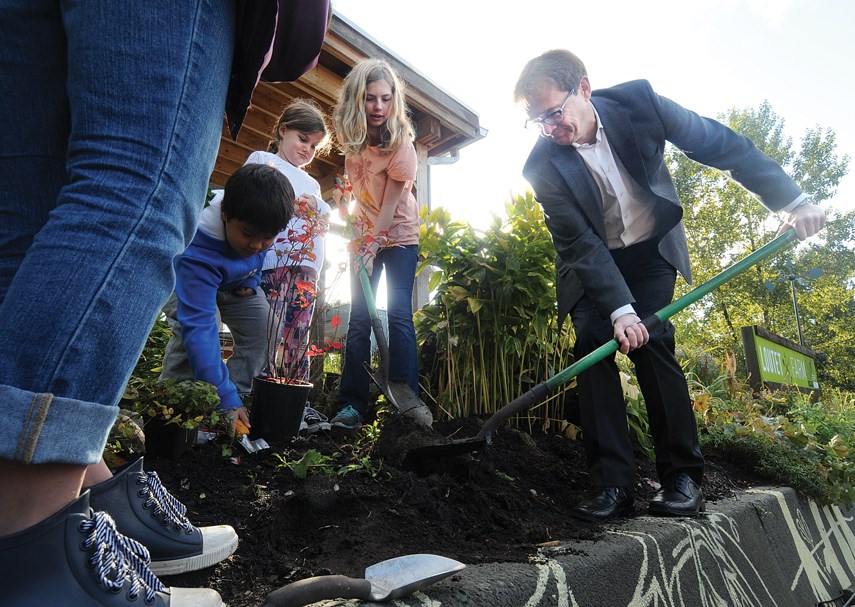The Edible Garden Project’s Loutet Farm in North Vancouver is one of dozens of locally focused groups across the country that will be receiving money from the federal government in a bid to combat climate change and support a greener environment.
North Vancouver Liberal MP Jonathan Wilkinson announced Friday on behalf of the Ministry of Environment and Climate Change Canada that more than $4 million in new funding would go to support 66 new EcoAction projects across Canada, including support for the work done at Loutet Farm.
The farm, a half acre of market garden on public park land at East 14th St. and Rufus Avenue, is run by the Edible Garden Project administered by North Shore Neighbourhood House.
“Canada is committed to creating a greener, more innovative economy that protects and enhances the quality of the environment,” Wilkinson said. “We are thus very pleased to support grassroots action that focuses on enhancing the natural environment.”
Since 1995, The EcoAction Community Funding Program has been providing financial support to community-group projects that have positive impacts on the environment.
The North Shore Neighbourhood House, one of 18 groups from across B.C. to receive the latest batch of funding, will get $27,881 that will go towards the Edible Garden Project’s pollinator garden project at Loutet Farm, according to a government release.
The pollinator garden project will include the construction of three gardens on Loutet Farm that will feature pollination-attractant plants, a move that will allow the garden and farm to flourish.
Part of the project will also involve a collaboration between the Edible Garden Project, Tsleil-Waututh Nation and Squamish Nation, where pollinator gardens are slated for construction on those nations’ community gardens.
Since its inception, EcoAction has granted $111 million in funding to more than 3,000 projects across the country that aim to create direct, local environmental contributions, according to a government release.



